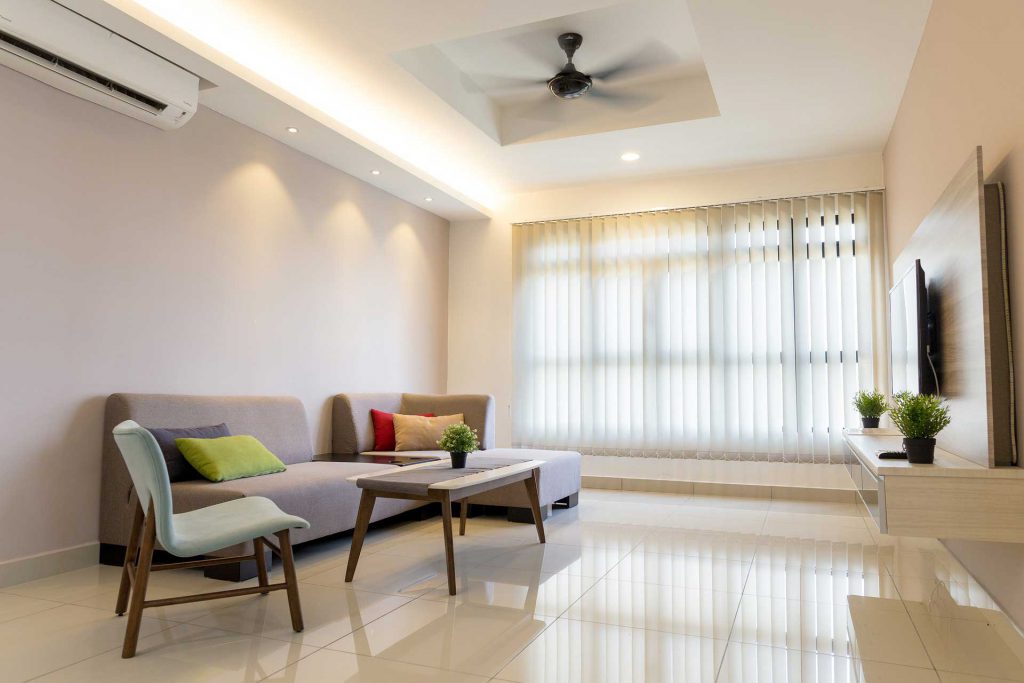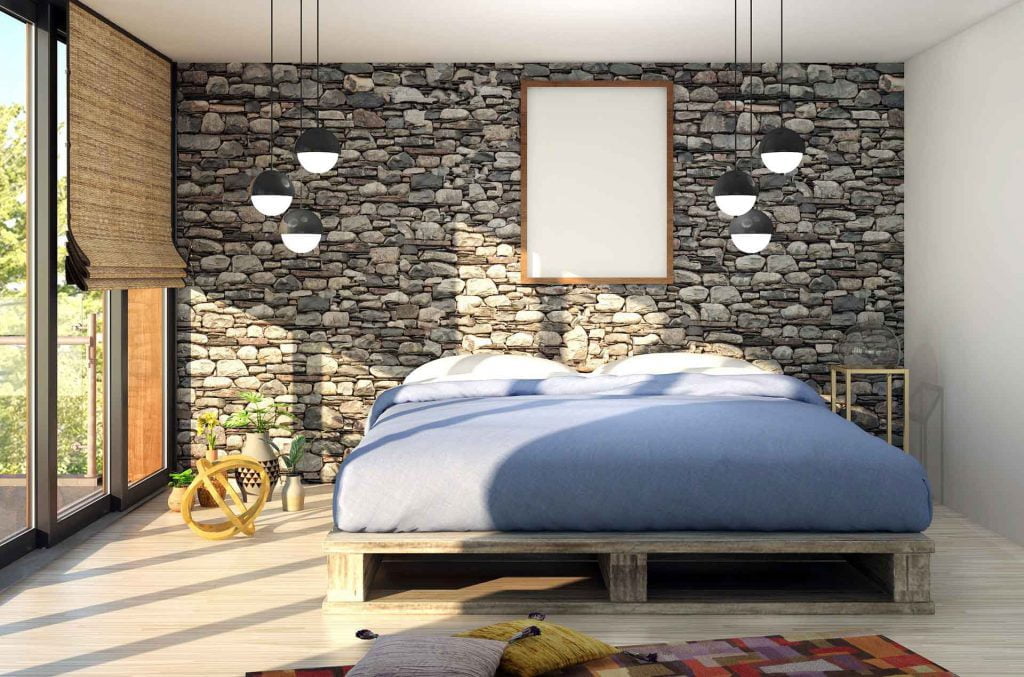
GARDEN & HOME >
“Are you a compulsive buyer?
Buying stuff you don’t need and later regretting it?
In debt because of it?”
T hough many may perceive a minimalist lifestyle with giving away all our stuff and hitting the road with just a few possessions, that would be inaccurate. There is so much more to the minimalist lifestyle, and it doesn’t mean giving up everything we love. Instead, minimalism can help us save money and focus on what we really need, not what we always want and don’t use. In turn, we can live more sustainably by placing less stress on our planet.
So, what exactly is minimalism and are there any benefits to adopting a minimalist lifestyle as an FDN?
MINIMALISM DEFINED
In short, it means not living up with the Joneses!
Minimalism is a lifestyle choice focused on consciously choosing to live with what we need, not necessarily what we want. Many serious minimalists even argue each person only need 100 belongings.
HISTORY OF MINIMALISM
Though minimalist might seem new, it’s earliest conception in modern terms can be traced back to the post-war era of the 1960s where it existed as an art form. It then spread to music, architecture and finally, into a lifestyle adopted by individuals seeking a simpler, clutter-free life that is more sustainable and healthier for our planet.
The roots of minimalism run deeper though. As a lifestyle, it can be traced back to Buddhism and early Christianity where many believed the best way to self-realization and ultimate liberation (moksha in ancient Hindu tradition) was by giving up all earthly possessions.
During the ’70s, minimalism as a lifestyle took off and has since steadily increased in popularity among young and old.

THE BENEFITS
1 – Declutter & De-Stress
Ever felt trapped by all the stuff in your house?
Clutter and excess in our lives can cause additional stress and depression, ironically. (And here we thought the more possessions we collect, the wealthier and more fulfilled lives we will live.)
By decluttering, donating what they didn’t need, and ultimately, only purchasing what they needed, many minimalist report they felt less stressed and happier for letting go of all ‘the stuff.’
2 – We Stop Fueling The Shopping Monster
Black Friday sales do not fool minimalists nor buy one-get one free promos. Instead, they stay away from such events and only shop when they are in full control of their environment and emotions. They know sales and promotions are mostly emotionally driven.
THE TEST
Are you a compulsive buyer?
Buying stuff you don’t need and later regretting it?
In debt because of it?
Then ask yourself these questions:
• Why do I purchase items I don’t need?
• What fuels the compulsion to acquire it? – My emotions or because I need the item?
• Do I buy the same things as my friends do to feel that I belong?
• Was my latest shopping trip emotionally fueled or our of necessity?
“There is so much more to the minimalist lifestyle, and it doesn’t mean giving up everything we love. Instead, minimalism can help us save money and focus on what we really need, not what we always want and don’t use. In turn, we can live more sustainably by placing less stress on our planet.”
By analyzing what we need, we find that the back-massage apparatus we bought and never used is not something we needed after all. Instead, we could go for a hands-on massage with a real human being. Or the 20th pair of shoes is not that glamour’s when it eats into our feet, so we stuff it in the back of the closed for ‘someday.’
When we focus on what we need, we start to realize that our needs and wants are two very different things.
A need is something or an item that sustains and adds value to our lives as human beings. Wants are often mostly emotionally driven compulses or programs.
When we go shopping from the point of view of what we need, it has three benefits:
• We become the master of our emotions and not a slave to consumerism.
• We take charge of our finances and save ourselves from making more credit card debt.
• We experience less stress and is more in control of our life and environment.
3 – We Force Consumerism To Slow Down Which Helps Our Planet
If more and more individuals adopted a minimalist lifestyle, it would mean we also placed less stress on our environment. Trillions of products are produced from natural raw materials each year, with over-exploitation of natural resources, habitat and animal life deteriorating at such an alarming rate that there is probable cause to believe there will be no fish left by 2050 (IRIN Report). Fisherman in Malawi, South Africa, and Indonesia said they have already felt the sting of over-fishing on their livelihoods and struggle to earn a living from fishing nowadays.
Not surprisingly, consumerism controls the number of products produced each year. If we paid attention to purchase what we need, we could save our planet before all our natural resources are destroyed.
4 – Less Harmful Plastics
The World Economic Forum conducted a study in 2015 and found an estimated eight million metric tons of plastic waste enter our oceans yearly. A serious problem considering 71% of the oceans cover the Earth’s surface. If we continue to pollute it, who knows how long before we suffocate the life from every animal and creature that needs clean ocean water to survive, including ourselves.
Plastic is everywhere around us. But we can help our planet by firstly segregating our waste and disposing of our plastic and recycle waste appropriately. This is where the minimalist lifestyle comes in handy. Minimalists don’t need to purchase new products continually. Furthermore, we can recycle or use the items otherwise thrown away in DIY projects or find other uses for them.
Example, build a stationary holder or create a shelf from throw-away plastics instead of purchasing these items.
CAN MINIMALISM BE BAD?
With all the positives we discussed so far it might seem there is nothing ‘bad’ about minimalism. But, we don’t live in such a perfect world where only the positive exists. For all the good minimalism has brought, a whole industry based on minimalism has also evolved. There are thousands of businesses around the world that focus on ‘product solutions’ for minimalists. Ironic as that might seem.
There are countless books, websites, DVD’s, and the like available on the subject. Luckily, though a lot of people are making money out it, it doesn’t mean the principles of minimalism is bad. How we act on the knowledge we gain ultimately determines if minimalism will be beneficial to us.
WATCH OUT FOR
Emotions may be one of those bad ones. Don’t act from the point of emotion when you decide to downscale and donate what you own. Take your time and first take careful stock of what you need in your life. Also, think of the future and if your children and family might need some of the stuff you own. Getting rid of belongings and later having to purchase them once again makes no sense.
Rather keep items such as pictures, photo albums, a vacuum or your running shoes. Draw up a list of what you need on one side of the paper, while on the other side list the stuff you never use.
Whether you decide to adopt a minimalist lifestyle, or perhaps merely de-cluttering your living space, the choice is yours and should fit the lifestyle you desire and want to live.
Peaceful living!
FDN LIFE >
AUTHOR
Ben Masterson
SUBSCRIBE TO
FDN LIFE NEWSLETTER!
Join our mailing list to receive the latest news, information, and special offers.

